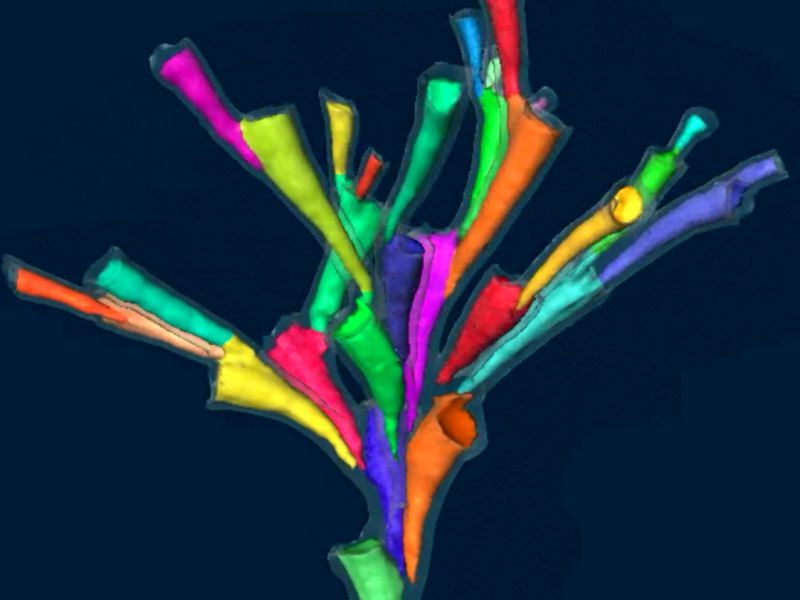CTcoral is a cooperation projet with the MARUM institute in Bremen.
Contact person at MARUM: Jürgen Titschack
Framework-forming cold-water corals (CWC) are important habitat engineers, which form reefs in the deep sea that present significant biodiversity hotspots. Over time these reefs build large seafloor obstacles, called coral mounds, which present important carbon sinks along continental margins. While our knowledge on the environmental needs of CWC, the global distribution of CWC reefs and the formation of coral mounds continuously increases, our understanding of the morphoplasticity of CWC regarding their corallite, colony and framework morphology and its influence on these systems is still highly limited due to the lack of observer-independent quantitative methodologies.
CTcoral aims to develop an automated methodology to taxonomically classify and morphologically characterise the most important framework-forming CWC from 3-dimensional (3D) computed tomography (CT) scans. To achieve this goal, we will implement machine-learning techniques that combine the advantages of image- and shape-based classifications. Since marine skeletons and shells are affected by bioerosion, which alters their shape and hence impacts the algorithm performance, we will further develop algorithms to segment bioerosion and produce bioerosion-corrected datasets to compensate this effect. Furthermore, as the accuracy and confidence of the taxonomic classification and morphological characterisation depend on coral fragment sizes and CT scan resolution, we will test to which degree the loss of information by small fragment sizes and low resolution can be compensated by using multiple fragments from one seafloor sample and by incorporating additional morphological criteria, respectively. The developed methodology will be applied to ~370 CWC specimens from all over the Atlantic Ocean to provide the first comprehensive description of the morphoplasticity of the most important CWC.
CTcoral is an interdisciplinary project that combines the expertise of marine geoscientists and computer scientists. It forms the basis for a follow-up proposal that will concentrate on the application of the developed methodology to investigate environmental preferences of specific corallite, colony and framework morphologies and the influences of coral communities and their respective morphology on coral mound formation. The developed methods within CTcoral are expected to be of broad applicability to other organism groups and will provide an important contribution on the road towards cybertaxonomy.
